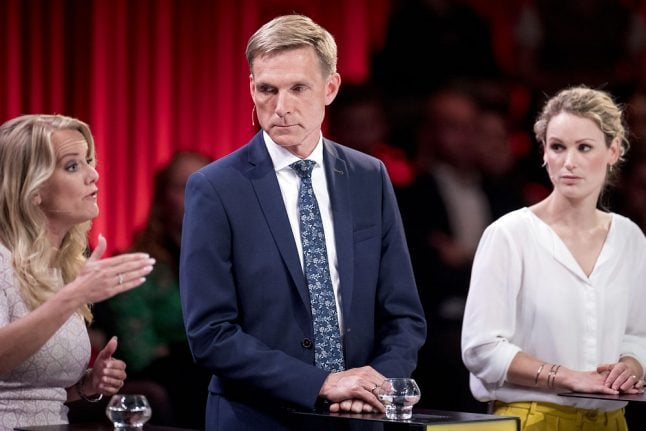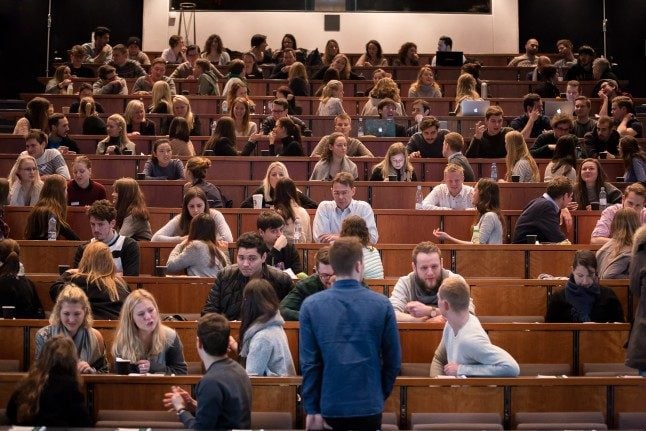DF leader Kristian Thulesen Dahl seemed resigned to defeat in his weekly letter, published on the party’s website two days before the election.
“All polls suggest we are going to be punished emphatically by voters compared to the election in 2015, and we also had that (bad) kind of election in the European parliament elections last Sunday,” Dahl wrote.
The anti-immigration party was cut from 4 seats in the EU parliament to 1 in the May 26th vote.
On Monday, Voxmeter polls put the DF's share at 9.9 percent, its lowest score for eight years, setting up a potentially crushing defeat in light of its performance in 2015, when it gained 21.1 percent of the vote to become Denmark’s second-largest party.
In 2015, DF exceeded expectations by taking more votes than polls had predicted.
The adoption of the vast majority of DF’s programme on immigration by the opposition Social Democrats is a key reason for the struggles of the established anti-immigration force, with many voters thought to have deserted Dahl’s party to vote for Mette Frederiksen.
At a press briefing on May 27th, the party’s MP Kenneth Kristensen Berth sought to point out DF’s consistent policy on immigration.
With DF, voters who want to limit immigration can “get the original for the same price”, Berth said.
The emergence of two new hardline anti-immigration parties to the right of DF is another factor in its diminished vote share, however.
READ ALSO: How two decades of immigration curbs moved far-right politics into Denmark's mainstream
Meanwhile, outspoken former leader Pia Kjærsgaard, who is the current speaker of parliament, on Monday called the audience of a live debate at public service broadcaster DR “awful”.
“Awful audience carefully selected by DR. Applause and tears every time acceptance of refugees mentioned. Silence to repatriation and asylum freeze,” Kjærsgaard tweeted, with no documentation for her claim the audience had been vetted.
Elendigt publikum udvalgt nøje af DR . Klapsalver og våde øjne hver gang, der bliver talt modtagelse af flygtninge. Og stilhed når der bliver talt om asylstop og hjemsendelse #dkpol
— Pia Kjærsgaard (@Pia_Kjaersgaard) June 3, 2019
DR’s head of news Thomas Falbe rejected the accusation.
“It’s a shame this has been presented as if we manipulated the people in the room. We have no interest in that. People came from all over Denmark and registration was free and open to all,” Falbe told Ritzau.
DR “in no way selected or rejected anyone. It was first come, first served,” the head of news said to BT.
Kjærsgaard, who also recently blamed climate activists for the high European election turnout before seeing those comments backfire, was accused of “playing the victim” and propagating a conspiracy theory by social media users.
In an interview with Radio 24syv on Tuesday, she doubled down on her statement and said she wasn’t obliged to provide proof for the claim.
“I’m entitled to say what my impression is without having a document in my hand and saying ‘here it is’,” Kjærsgaard said.
Regardless of the party’s troubles, current leader Dahl still appears to have the confidence of its representatives in parliament.
“However it goes on Wednesday, I still have full confidence in Kristian as leader,” DF lawmaker Lise Bech told Ritzau via text message.
READ MORE
The Local's general election guide to:



 Please whitelist us to continue reading.
Please whitelist us to continue reading.
Member comments